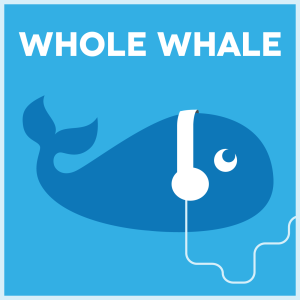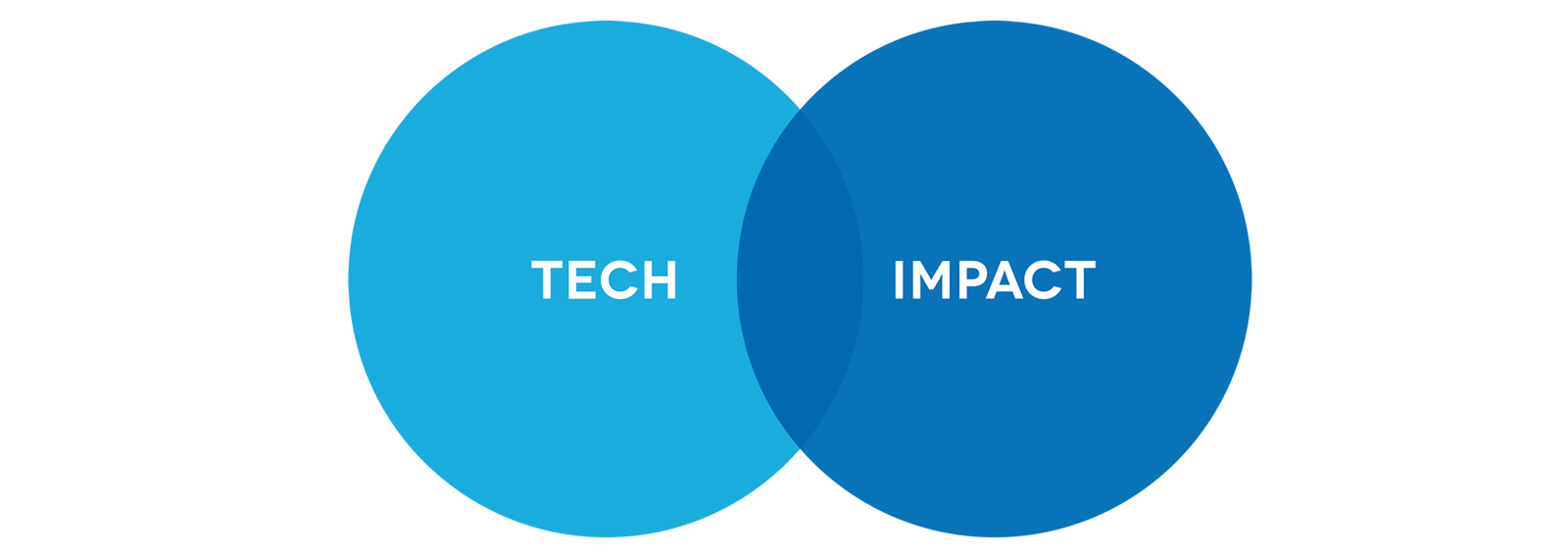
215.3K
Downloads
514
Episodes
Nonprofit News, Tech & Marketing Stories from Whole Whale, a Nationally Recognized Nonprofit Marketing Agency for over a decade. Founded in 2010, Whole Whale is a B-Corp that runs analytics, digital advertising, Google Ad Grants, and SEO for nonprofits.
Nonprofit News, Tech & Marketing Stories from Whole Whale, a Nationally Recognized Nonprofit Marketing Agency for over a decade. Founded in 2010, Whole Whale is a B-Corp that runs analytics, digital advertising, Google Ad Grants, and SEO for nonprofits.
Episodes

4 days ago
4 days ago
AI's Impact on Nonprofit Visibility and the Changing Landscape of Foundation Support
This week's episode of the Nonprofit Newsfeed, the hosts delve into the evolving dynamics of AI's influence on nonprofit visibility and the current state of foundation support.
Main Topics:
-
AI's Knowledge Windows and Nonprofit Visibility: George and Nick discuss a new beta feature from OpenAI's ChatGPT called "knowledge windows." This feature presents information about organizations directly within the AI interface, potentially reducing website traffic as users get essential details without needing to visit the source. This development could significantly alter how nonprofits engage with potential donors and supporters, as AI becomes the gatekeeper of information.
-
Foundation Support and Nonprofit Perception Gap: A report from the Center for Effective Philanthropy highlights a significant perception gap between foundations and nonprofits. While 93% of foundation leaders believe they understand grantee challenges, only 54% of nonprofits agree. The report also notes that foundation responses have weakened post-COVID, despite increased demand for nonprofit services.

Friday Jan 23, 2026
AI Ads Are Here: A New Frontier for Nonprofits (news)
Friday Jan 23, 2026
Friday Jan 23, 2026
AI Ads: A New Frontier for Nonprofits
This week on the Nonprofit Newsfeed the hosts dive into a game-changing announcement from OpenAI that could revolutionize nonprofit marketing strategies. OpenAI has revealed plans to pilot advertising on ChatGPT, marking a significant shift in how nonprofits might engage with audiences.
Key Highlights:
- OpenAI's Announcement: OpenAI is testing ads in select markets for ChatGPT's free and low-cost tiers, aiming to provide more users with access to its AI tools without usage limits.
- Implications for Nonprofits: With approximately 800 million weekly active users, ChatGPT offers nonprofits a vast audience for targeted advertising. This presents an unprecedented opportunity to engage users during meaningful conversations across diverse contexts, from education to health advice.
- Concerns and Opportunities: While the prospect of ads in AI raises concerns about data privacy and the influence on AI-generated content, it also opens doors for nonprofits to reach audiences in innovative ways. The challenge will be crafting ad content that complements AI interactions without disrupting user trust.
- Transparency and Analytics: The move towards advertising may also introduce valuable analytics tools, enabling nonprofits to gain insights into user behavior and optimize their engagement strategies.
Nonprofit Wellness Index Update:
The podcast also highlights Whole Whale's Nonprofit Wellness Index, which tracks sector health through job postings, layoffs, and ad spending. December's index hit a record high, indicating a positive rebound from previous lows, suggesting a revitalized nonprofit sector.
Feel-Good Story:
In a lighter segment, the hosts share a unique fundraising initiative from an Alaskan bird conservation group. For Valentine's Day, donors can name a rat after an ex, which will then be fed to a bird of prey, offering both cathartic satisfaction and support for wildlife conservation.

Wednesday Jan 21, 2026
Wednesday Jan 21, 2026
This week on the Nonprofit News Feed, the hosts dive into pressing digital safety issues and uplifting philanthropic news. The episode covers the alarming rise of deep fakes and their implications for nonprofits, and celebrates a significant donation to support LGBTQ+ youth.
Main Topics:
-
Global Crisis of Deep Fakes: The episode highlights the disturbing trend of deep fakes, particularly on the AI platform Grok, which is generating non-consensual and sexualized images. The hosts stress the urgent need for nonprofits working with vulnerable groups to advocate for stricter regulations and educate communities on digital safety.
-
Implications for Nonprofits: The conversation emphasizes the critical role of nonprofits in combating AI-enabled cyberbullying and gender-based violence. Organizations are called to update internet safety protocols and engage in advocacy to protect affected communities.
-
Mackenzie Scott's Transformative Gift: In a beacon of hope, Mackenzie Scott's $45 million unrestricted donation to the Trevor Project is celebrated. This lifeline comes after federal funding cuts and highlights the importance of substantial, unrestricted support for nonprofits in crisis.
-
Dissolution of the Corporation for Public Broadcasting: The episode also covers the dissolution of this vital organization due to funding cuts, impacting local journalism and broadcasting. The hosts discuss the potential repercussions on local news and the need for new revenue streams.

Wednesday Jan 14, 2026
Neurogiving: Science of Donor Decision-Making | Author Interview
Wednesday Jan 14, 2026
Wednesday Jan 14, 2026

Monday Jan 12, 2026
Monday Jan 12, 2026
Episode Overview:
-
Fraud in Minnesota's Social Services:
- Federal prosecutors have uncovered widespread fraud in Minnesota's social safety programs, with fewer than 100 individuals exploiting pandemic-era funds, resulting in over $1 billion in misappropriations.
- The lack of effective oversight allowed fraudulent activities to flourish, leading to significant repercussions for the Somali community in Minnesota.
- The "blast radius" effect highlights how a few bad actors can have widespread negative impacts on an entire community, affecting funding and perception.
-
Flipcause Bankruptcy Fallout:
- Flipcause, a fundraising platform, has filed for bankruptcy, owing over $29 million to more than 3,200 nonprofits.
- The insolvency raises questions about the platform's financial management practices, emphasizing the need for nonprofits to maintain control over their payment processing systems.
-
Chan Zuckerberg Initiative's Strategic Shift:
- The Chan Zuckerberg Initiative has withdrawn support from Forward Us, an immigration nonprofit, citing a strategic focus on science and education.
- This decision reflects a broader trend of philanthropic organizations re-evaluating their commitments to social justice initiatives.

Wednesday Dec 17, 2025
2025 in Review: Navigating AI Shifts and Nonprofit Challenges (news)
Wednesday Dec 17, 2025
Wednesday Dec 17, 2025
In the latest episode of the Whole Whale Podcast, hosts George and Nick reflect on the transformative themes that shaped the nonprofit sector in 2025. With a focus on AI's impact, they explore how answer engine optimization (AEO) has redefined nonprofit discovery and engagement. AI's rapid adoption has led to decreased organic traffic for nonprofits, necessitating strategic pivots in content and donor engagement.
George highlights a significant increase in AI-generated content, with Whole Whale producing nearly a million words daily. This shift underscores the need for nonprofits to establish internal AI policies and balance AI use with human oversight to maintain ethical standards and foster innovation.
Nick introduces the "crawl, walk, run" framework, guiding nonprofits in adopting AI responsibly. He emphasizes the importance of maintaining human expertise and authority in an AI-saturated world, urging organizations to focus on quality over quantity in content creation.
The episode also revisits key rants from 2025, including Microsoft's controversial changes to its nonprofit grant program and GoFundMe's unauthorized creation of shadow donation pages for nonprofits. These challenges highlight the importance of maintaining autonomy and control over nonprofit branding and fundraising.
Looking ahead to 2026, George and Nick advise nonprofits to prioritize strategic use of AI, leveraging high-quality intelligence tokens to amplify impact while avoiding the pitfalls of AI-generated "slop." They stress the importance of creating original, authoritative content that reflects an organization's mission and expertise.
As they close the episode, George and Nick express optimism for 2026, anticipating renewed energy and opportunities for nonprofits amidst upcoming midterms and sector transformations.

Monday Dec 08, 2025
Navigating Donation Platform Risks and AI Opportunities (news)
Monday Dec 08, 2025
Monday Dec 08, 2025
In this episode of the Nonprofit Newsfeed the hosts dive into the latest developments in the nonprofit sector, focusing on the aftermath of Giving Tuesday, challenges with donation platforms, and exciting AI opportunities for nonprofits.
Key Topics:
-
Giving Tuesday Overview: The hosts reflect on the impact and outcomes of the recent Giving Tuesday, with hopes that it reached the predicted $4 million mark to kickstart the fundraising season for nonprofits.
-
Donation Platform Concerns: A significant issue discussed is the case of Flip Cause, a donation platform that inadvertently kept "shadow campaign pages" live, leading to a $500,000 loss in donation revenue. The California State Attorney General issued a cease and desist order after nonprofits reported these discrepancies. This incident underscores the risks associated with outdated or unauthorized donation pages, emphasizing the need for nonprofits to regularly audit and verify their donation processes and data integrity.
-
AI for Nonprofits: Anthropic's announcement of Claude for Nonprofits offers a 75% discount on AI access, aiming to enhance nonprofit operations with AI tools for grant writing, engagement, and program evaluation. The hosts compare this offering to Google's AI tools, discussing pricing and the importance of choosing the right AI tools to maximize impact while ensuring data privacy.
-
Mr. Beast and Rockefeller Foundation Collaboration: The partnership between YouTuber Mr. Beast and the Rockefeller Foundation aims to engage young people in philanthropy by combining storytelling with data-driven philanthropy. The discussion highlights the potential impact and pitfalls of influencer-led philanthropy, emphasizing the importance of ethical storytelling and the need to avoid reinforcing negative narratives about aid recipients.

Tuesday Dec 02, 2025
Unapologetic Ambition: The "Badass Softie" Leader with JJ Peterson
Tuesday Dec 02, 2025
Tuesday Dec 02, 2025

Wednesday Nov 12, 2025
From Impressions to Impact: Leveraging LinkedIn for Nonprofits
Wednesday Nov 12, 2025
Wednesday Nov 12, 2025
In this episode of the Whole Wheel Podcast, host George engages with Mario Hernandez, co-founder of Impact Circle, to discuss the power of LinkedIn for nonprofits. Mario shares insights into the importance of value-driven content over mere posting frequency, and how organizations can leverage LinkedIn to secure corporate partnerships. Through practical tips and personal anecdotes, the conversation delves into strategies for building genuine relationships, utilizing LinkedIn's features effectively, and avoiding common pitfalls like over-relying on AI or playing the virality game. Mario also offers valuable advice on resisting the temptation of pay-to-play options and focusing on long-term relationship building for sustainable growth. The episode highlights the challenges and opportunities for nonprofits in a changing landscape, emphasizing innovation, empathy, and methodical engagement on LinkedIn.
Topics Covered

Tuesday Oct 28, 2025
Scary Truth about Nonprofit Mergers & Failing | Kate Harris Group
Tuesday Oct 28, 2025
Tuesday Oct 28, 2025
Interview with Kate Harris: https://www.kateharrisgroup.com/who-we-are
